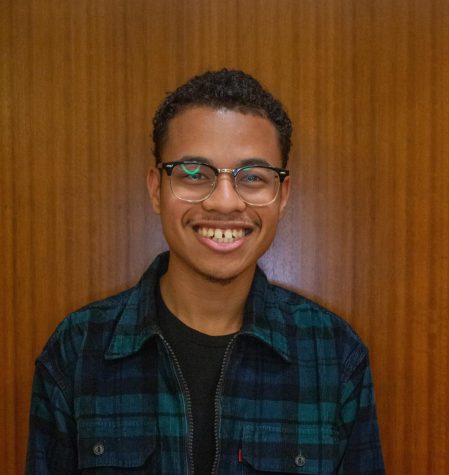When I arrived at San Diego State as a journalism major, I set myself out to become what I quickly noticed there was not enough of in the media world: a black journalist.
With Black History Month underway, I want to take a moment to make a statement: there should be more African Americans and black people involved in the journalism-related fields.
On local television, I notice a lack of minority representation among journalists, and it is time for a change.
Having more African American journalists in media jobs brings diversity, equity and inclusion where there isn’t enough of it.
I want to say I am for and encourage people of all identities and backgrounds to come into the world of journalism. In fact, it is essential and welcomed.
Having more black journalists can provide new perspectives on a myriad of issues, especially those that touch black people on a personal level such as criminal justice, race, social injustices and so much more. Having black journalists can open up new discussion points for people when they watch the media, it can make them think from a perspective they were not exposed to before.
Having more black journalists also inspires people, especially younger people who want to pursue this career to think about one important word: hope.
There’s a famous picture in the White House of former president Barack Obama bending his head down so a young African American child can touch his head because the child didn’t believe that the president of the United States had the same hair as him.
The picture represented a symbol of hope for many black people, especially the younger generation. Many people believed if a black man can become president, then they could be it someday too.
If there were more black journalists, imagine the feeling of hope that would be instilled in young black children. When they see people who look like them and who came from a background like theirs, it may encourage them to want to do the same thing, pursue the same career. It can inspire people and motivate them to want to become a journalist, just like how I felt.
This doesn’t take away from the great work black journalists, such as Ida B. Wells, Gwen Ifill, Ed Bradley, Bill Whitaker and April Ryan, have done and are doing in order to pave the way for others to become successful in the journalism world. I am just saying it is important, especially in today’s world where the profession is always delegitimized and attacked, to have diversity, equity and inclusion in newsrooms.
This can be started by encouraging and educating more African Americans about the value journalism has toward society and how they can become an important contributor.
Look, the media has made immense progress over the past few decades in establishing more diversity in the world of journalism. It is stronger than it has ever been before. But there is still progress to be made in terms of bringing in more black people into the world of journalism.
A famous quote from James Baldwin motivates me everyday to become a trailblazer of my profession for myself and for others around me.
“Not everything that is faced can be changed. But nothing can be changed until it is faced,” he said.
As Black History Month comes to a close, Baldwin’s words echo true. The lack of black journalists is an issue within the profession that has to be challenged.
I encourage black people to explore the world of journalism more, and the value it holds toward the black community, the media and the democracy of our country as a whole.
Like the saying goes, the pen is mightier than the sword.
Devin Whatley is a sophomore studying journalism. Follow him on Twitter @DevinWhatley.








